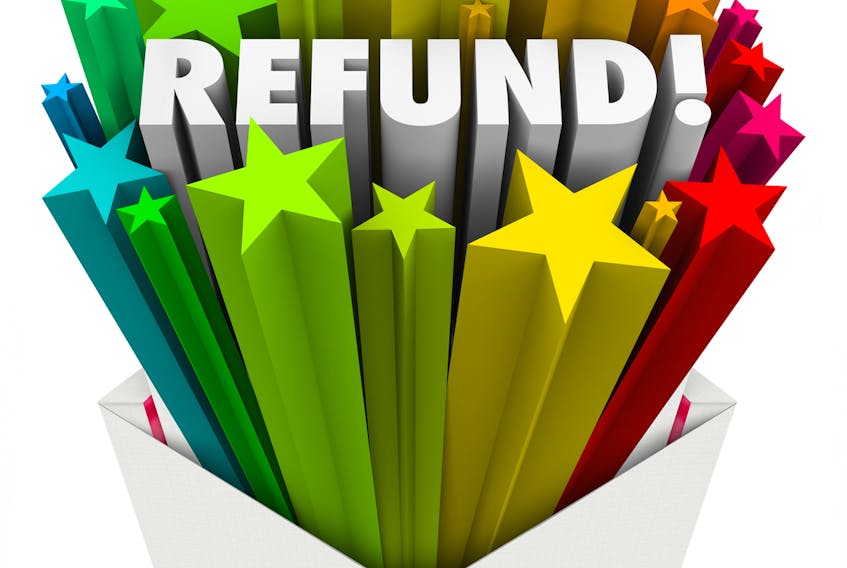If you are entitled to a tax refund this year, you need to decide what you should do with it. Sure, you could spend it, but then it’s gone. Here are six alternatives with longer term benefits for your financial future.
- 1 Immediately use your refund to make your 2018 Registered Retirement Savings Plan (RRSP) contribution and you’ll get the benefit of nearly an extra year of potential long-term tax-deferred growth plus a tax deduction against your 2018 income.
- 2 Contribute to investments held in a Tax-Free Savings Account (TFSA). Your TFSA contribution room was increased by $5,500 as of Jan. 1, 2018. Your contributions are not tax-deductible, but you will not be taxed on the income generated by the investments in your TFSA, you can make tax-free withdrawals for any purpose at any time, and you can re-contribute any of those withdrawals in a future year.
- 3 Invest it. If your RRSP and TFSA are topped up, consider adding your refund to your non-registered investments. A tax-efficient strategy is to hold stocks and equity based mutual funds outside a RRSP or TFSA because dispositions of these types of investments are taxed using a more favourable capital gain income inclusion rate plus dividends from many Canadian corporations are eligible for the dividend tax credit.
- 4 Pay for your kids’ education. Set up Registered Education Savings Plans (RESPs) to fund their future post-secondary education costs. Contributions to investments within a RESP are not tax-deductible but their growth is tax-deferred and they may qualify for Canadian Education Savings Grants (CESG)1 of up to 20 per cent of the first $2,500 or $5,000 you contribute each year. Depending on the primary caregiver’s family income, you could receive an extra 10-20 per cent of Additional CESG on the first $500 you save in your child’s RESP each year.
5 - Pay down costly, high-interest credit card debt and then pay down non-deductible debt such as your mortgage – a single prepayment could potentially save hundreds, even thousands of dollars in interest payments.
6 - If your refund is large, consider parking that cash in a short-term investment that you can access without penalty. That way, you’ll have a ready source of money for a rainy day or a larger purchase – a new car? – without having to borrow or use credit. (A TFSA is also a good rainy day fund.)
Tax refunds are nice, but not as nice as enhancing your personal long term financial growth. Talk to your professional advisor about a comprehensive tax-reducing financial plan that will help make it possible for you to achieve all your financial and life goals.
This column, written and published by Investors Group Financial Services Inc. and Investors Group Securities Inc. presents general information only and is not a solicitation to buy or sell any investments. Contact your own adviser for specific advice about your circumstances.









